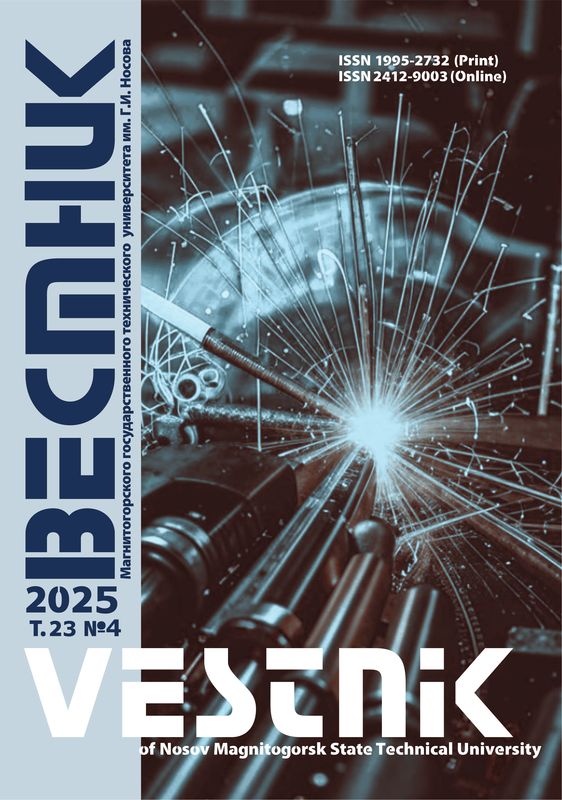DOI: 10.18503/1995-2732-2022-20-3-122-129
Abstract
This paper describes the problem of standardization of innovations, which is related to the creative aspect of R&D work. The author looks at the historical context of the problem describing in detail previous attempts to resolve it. As the classical object-based approach would not be easy to apply in this case, a completely new approach to standardi-zation is proposed. Pointing at today’s higher rate of scientific and technical progress, the author stresses the relevance of this problem while substantiating the need for such a system and explaining why it is crucial to revise it. The study is based on the works by G. S. Altschuller, the founder of the Theory of Inventive Problem Solving, which constitute the first attempts to elaborate a standard for inventions. The author also analyzes the current situation and looks at the social and psychological aspects of the issue. The paper offers two possible solutions for the above problem: typology-based standardization of inventions and standardization of the inventor work environment. Both solutions prove effective in boosting inventor efficiency. This approach allows to account for the personality traits of researchers, which can help create a stimulating work environment thus ensuring quality output. The paper gives some useful information on certain aspects of inventor work while using case studies to support certain statements.
Keywords
standardization, scientific progress, science, development, efficiency, management
For citation
Vasetskaya N.O. Inventor Work Amid Uncertainty of the Future Technical Progress: Standardization and Problems of Improving R&D Quality. Vestnik Magnitogorskogo Gosudarstvennogo Tekhnicheskogo Universiteta im. G.I. Nosova [Vestnik of Nosov Magnitogorsk State Technical University]. 2022, vol. 20, no. 3, pp. 122-129. https://doi.org/10.18503/1995-2732-2022-20-3-122-129
1. Kiselev D.V., Kazantsev A.A., Sukhinina D.N. The Tesla phenomenon in China. Skif. Voprosy studench-eskoy nauki [Skiff. Problems of student science], 2020, no. 7 (47), pp. 331-338. (In Russ.)
2. Popova I.G., Gritsay I.P., Skvortsova N.S. The pro-spects of creating quantum computers. Molodoy issledovatel Dona [Young researcher from the Don region], 2019, no. 6 (21), pp. 86-88. (In Russ.)
3. Tselishcheva Z.A. The science and innovation climate in Russia: General trends, involvement of universities and young experts. Diskussiya [Discussion], 2018, no. 2 (87), pp. 66-71. (In Russ.)
4. Altschuller G.S. Algoritm izobreteniya [The invention algorithm]. Moscow: Moskovskiy rabochiy, 1969, 63 p. (In Russ.)
5. Ilyina I.A., Demidova E.V. Introduction of occupa-tional standards in the personnel certification process. Reshetnevskie chteniya [Reshetnev readings], 2018, vol. 2, pp. 482-484. (In Russ.)
6. Fateeva N.B., Petrova L.N., Kuznetsova A.A. Intro-duction of occupational standards for organizations. Agrarnoe obrazovanie i nauka [Agricultural educa-tion and science], 2018, no. 2. (In Russ.)
7. Lyanov T.B., Lyanov R.B., Lyanov G.B., Kiseleva M.S. Standardization as part of innovation. StudNet, 2020, no. 5, vol. 3, pp. 503-507. (In Russ.)
8. Vaganova N.I., Nevmyatullina Kh.I. Standardization in engineering. Uspekhi v khimii i khimicheskoy tekhnologii [Advancements in chemistry and chemical engineering], 2018, no. 8(204), vol. 32, pp. 89-91. (In Russ.)
9. Yanchenko A.Yu., Androsenko N.V., Ivanova G.N. Modern standardization systems aimed at improving the ecological status in the regions. Ekonomika re-giona [Regional economy], 2018, no. 2, vol. 14, pp. 516-529. (In Russ.)
10. Okrepilov V.V., Chudinovskikh I.V. Use of standardization systems to improve the environment as a life quality factor by utilizing the technological potential of production companies. Problemy prognozirovaniya [The issues of forecasting], 2018, no. 5(170), pp. 51-59. (In Russ.)












